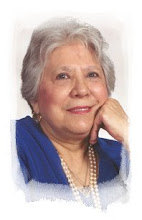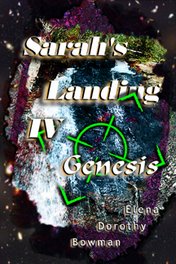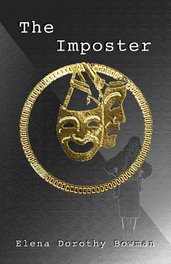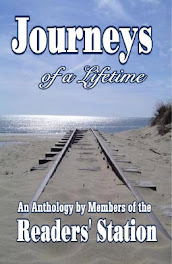Russell encouraged his wife to write about her grandfather, Guy T. Viskniskki, when he began writing about the animals on their farm. Her book, Unsung Patriot is based on her memories of family stories and upon Guy’s unpublished memoirs of his time in France.
Guy founded The Stars and Stripes, the newspaper of our armed forces, during World War I. He had spent over twenty years in the newspaper business, working up from being a printer’s devil to owning a syndicate that sold articles to all the major newspapers. When Guy volunteered for service in 1917, he hoped to go on the line and fight as his ancestors had. Instead, he ended up as the first officer-in-charge and first editor-in-chief of The Stars and Stripes, the newspaper he created. Virginia is very proud that the principles that Guy established for the newspaper are still its guiding principles today in 2008.
Good Morning, Virginia. Welcome to my Book Blog. It's a pleasure to have you visit us today.
EDBB-1. Krazy Duck Publications. What an interesting name. Why did you pick that particular name for your publishing company and what does it represent to you?
VGV: Elena, the name Krazy Duck Productions originated in a story that my husband, Russell, wrote in his first book, Tears and Tales. He told the story of a pet duck that he had in his early twenties. Among other attributes, this duck drank whiskey and got a little crazy. The duck’s real name was Salamander. Somehow that name just didn’t resonate in the story so we started referring to him as ‘Crazy Duck’. Russ changed the duck’s name to Krazy Duck in the book.
When we realized that we needed to not only self-publish our books but also to market them, we decided we needed to have a company. We played around with various names but kept coming back to Krazy Duck Productions. In a way, it is us. We don’t always do things ‘by the book’ and in many ways we are unconventional so I think Krazy Duck fits us.
EDBB-2. From your story list is appears that most of your stories are about animals. Are these taken from life or are they fiction?
VGV: From my point of view Russ is the writer in the family. He wrote Tears and Tales and The Horse with the Golden Mane about animals that he (we) know. Tears and Tales was written shortly after he recovered from colon cancer. It’s a collection of eleven short stories that tell how many of the animals that we have helped him combat the depression of knowing he had cancer. Git tells the story of my dog, Sweet Pea, who appeared at our farm, ragged and unfed, and how she made a home for herself. By the way, Sweetie is still with me and it’s been ten years. The Ghost beside Me talks about Nikki, a rescued Doberman, who taught Russ to fight against the cancer. The Cardinal is Nikki’s continuing story. Nikki had fought lymphoma for over two and one-half years. I believe she fought to be with me. She died the morning I was to take Russ to the hospital for a colonoscopy. I truly believe that Nikki knew I could no longer care for her and that I needed to care for Russ. In her second story you will find out how she came back to reaffirm that belief.
So the quick answer to your question is that the animal stories are non-fiction. The only story that contains quite a bit of fiction is the third story in The Horse with the Golden
Mane. Maya in that story is based on me and I am very much alive.
EDBB-3. Are all the books you publish non-fiction? If so, why did you choose to take this route rather than publishing both fiction and non-fiction?
VGV: So far the books have been non-fiction. Unsung Patriot is a biography/memoir of my grandfather. I am not a fiction writer. Between being a history major and an attorney, I just have a very hard time writing fiction. Russ, on the other hand, is very good at it, but, so far, his books have been mostly non-fiction. He does have some on the back burner that are fiction but his next one is about growing up in Newark, NJ, in the 40s and 50s. I think he needed to get that out before the fiction can really emerge. I would expect, somewhere down the road, we will start publishing works of fiction.
EDBB-4. The Stars and Stripes lasted longer than World War I. In fact it is still a part of the U.S. Army. What would your grandfather have thought if he knew what he created in WWI would still be flourishing in 2008?
VGV: I have wondered, too, what my grandfather would have thought. I know that he wanted the paper to die with the American Expeditionary Forces return from France at the end of World War I. He didn’t want the paper used for any other purpose than to support and increase morale of our troops. In 1918 the United States didn’t have much of a standing army so he didn’t see any reason for the paper to continue.
The Stars and Stripes did print volume two from England in early 1942, after the United States had entered World War II. Guy was still alive then. The family stories tell of him planting a victory garden and doing everything that a 60+ year old man could do to help the war effort. I never heard stories of how he felt about the paper being resurrected. However, I do know that he was very proud of his contribution to the army, even though he wanted to fight on the front line rather than start a newspaper.
After learning more about my grandfather from research that I did for my book, I think he would be very proud and very happy to know that the paper is still flourishing. I think this is especially true because The Stars and Stripes still adheres to the founding principles that my grandfather fought so hard for: By and For the Soldiers.
EDBB-5. I can imagine what inspired you to write this book about your grandfather, but what did you learn about your grandfather that you didn't know as you went through his memoirs to write this book?
VGV: My grandfather died about two years before I was born so, obviously, I never knew him. I grew up with competing images of him. My grandmother, his widow, lived next door to us, and she would often talk about him to me. She loved him and admired him. She recognized that he has some eccentricities but that was the man she loved. My mother, his youngest child, called him ‘The Colonel’. I never once heard her refer to her father as ‘Dad’. She would tell me stories about her father but there was always a reserve. My aunt, the oldest child of the father, would literally freeze if I mentioned my grandfather. My Dad seemed to like my grandfather and to respect.
Growing up I felt that I never knew who my grandfather was.
In writing this book I have come to know him, not just as the newspaperman who was able to start a newspaper for our troops that has lasted until 2008. But as a grandfather who was very complex and dynamic but who loved his family intensely. He was just unable to show a lot of that love. I believe that I have found my grandfather – a man of many facets.
EDBB-6. You most likely have been asked this question before, but other than the journal, if there was one, where did you get the information you needed to really put this book together and give it the justice it deserved?
VGV: Growing up I had heard of ‘The Viskniskki Manuscript’ which referred to papers that Guy had written years after 1917-1918 to tell about how The Stars and Stripes began. When my mother died twenty years ago, I found I was in possession of these papers which I didn’t know she had. On top of that I found a whole scrape book of newspapers articles that my grandmother had collected. Most of them were from WWI but some were from the 20s and 30s.
I used my grandfather’s papers for the information on how the paper got started. What I found amazing is that people who are very familiar with The Stars and Stripes in WWI did not have the in-depth information that I did. So I have copied his manuscript and given it to The Stars and Stripes Museum/Library in Missouri and also to the Carlisle Military Barracks Museum in Pennsylvania.
Using my grandmother’s scrape book, I contacted the various newspapers that had printed articles about Guy. The Oregonian and the Clarksburg Telegram allowed me to print articles about him in my book. My grandfather grew up in Carmi, IL, and I was allowed to use anything, whether copied in full or not, from any article about him in any of their papers. It was amazing to me how people who didn’t know me allowed me to use their material.
The editor of The Carmi Times put me in touch with the family that was living in Viskniskki house in Carmi. Cindy gave me papers from her house closing that showed me who had owned the original house and many other interesting facts.
I also relied on my memory of stories about my grandfather that my mom and grandmother had told me. And my Dad’s sister, Edith, was a great help. She was the only person who was an adult when Guy was still living. She gave me many insights into him, probably because she was a bit distanced – she wasn’t a member of the immediate family. And she truly liked him.
EDBB-7. In your grandfather's memoirs did you find anything about his time in France and what he went through? If so, are you planning on writing another book to compliment The Unsung Patriot?
VGV: The answer to the second question is ‘No, I think I’ve written the one and only book I will ever write’.
Most of my grandfather’s memoirs dealt with his time in France in 1917-18, trying to get The Stars and Stripes up and running. His memoirs comprise 435 typewritten pages. For a man who was a very good writer, when he wrote his memoirs, Guy wrote in the third person and it is very boring. I asked my aunt about this and she thought it probably had to do with the fact that he never talked about starting the paper. And she knew him for 15+ years!
What I tried to do was to take the most interesting and relevant parts of his memoirs, some of which are quoted in full, and incorporate them into my book. For instance, he talked about the original staff of the paper. Since I wrote Unsung Patriot, I have found out that this is the first time physical descriptions of some of the staff have ever materialized. I also tried to show his thought processes as he was trying to get the paper going. All this I gleaned from his memoirs.
EDBB-8. Riding and caring for horses, and publishing books, appears to be the major interest in your life other than your family, but what other projects do you have on the table now or are planning for in the future? Do you have any other hobbies or interests that hold your attention other than your grandchildren? What do you like to do when you are not engaged in any particular project?
VGV: I have a continuing interest in genealogy. I am very lucky that my aunts did quite a bit of research on my family and I have been able to build on their findings. Right now I am trying to take two different sides of the family and trace them back to Germany in the 1800s. I have also researched my husband’s family back to about 1750 in a small town in Sicily. It’s just wonderful to have the Internet so that you can do much of the research from home.
Russ and I are planning on traveling to a number of book fairs this spring and summer. We’ll be in Charlottesville, VA, on March 29th, for the Virginia Book Festival. I try to keep our tour dates posted on www.booktour.com and on our main website, www.krazyduck.com. So, if anyone would like to meet us, they can check where we will be.
On a normal day I try to walk about three miles. Sweet Pea, Spunky and I walk through our fields and into the woods. I find the walking very relaxing and it often seems that I come back with a solution to a problem, even when I haven’t been thinking about it. In good weather Russ and I will go horseback riding and the dogs come along. We have about four hours of trails on our farm so we can just pick up and ride as the mood strikes. And my girlfriends and I try to get out about once a month and do something fun, whether it’s going out to eat or getting a complete make-over.
EDBB-9. Besides the book, Unsung Patriot, what do your grandchildren know about their great-grandfather and how would you like them to really know who he really was and why they should be especially proud of him?
VGV: This is a hard one, Elena, because my oldest grandchild is just turning nine. Russ and I have told him stories about Guy and his mom has a copy of Unsung Patriot to give him when he is older. My other grandchildren are six, four and newborn so it is hard to tell them about their great-grandfather.
I do want them to know that he started a newspaper that has been helping our troops for many years and that the paper has been able to expand. Now the paper is being printed, not only in the United States, but in Germany, Japan, Iraq, and other Middle Eastern countries. The paper is available online, not just in print, so that our troops aboard ship can read it on time.
I want them to be proud that their great-grandfather is, in a way, still helping our troops, no matter where they are, and that the troops feel they can express themselves openly in the paper just as they could back in 1918. One thing that I learned as I researched my grandfather is that he gave his family a great legacy, something to be proud of.
EDBB-10. Is there anything you'd like to tell us about yourself, your family or your grandfather that we don't know about him?
VGV: I think my grandfather would be very happy that his contribution to The Stars and Stripes is being recognized today. It bothered him that General Pershing took credit for having founded the newspaper. I don’t think Guy wanted the credit for the sake of bragging rights. I think it bothered him that the general took credit for something he really didn’t do. Pershing agreed that the paper should be started but, beyond that, he did nothing to actually get it going.
My grandmother and mother had tried for years to get some government agency to accept my grandfather’s memoirs, thinking that the history of the founding of the paper was important. None was interested. So I am very happy that I have been able to get his story out to the public. And I like to think that my grandfather is proud of me for doing that.
Elena, thank you so much for the interview. It was fun.
Thank you, Virginia for joining us today and we wish you much success with your book,
Unsung Patriot and in all your endeavors.

Virginia Gillespie Vassallo was born in Montclair, New Jersey, on April 11, 1951. She graduated cum laude from The Kimberley School in June, 1969, and spent her freshman year of college at Jackson College, Tufts University. After marriage she attended Susquehanna University and, two children later, she graduated from Montclair State University in 1979 with a BA in history.
As a single mother looking for a better job with more income, she entered the Seton Hall University School of Law in 1982 where she obtained her JD and was admitted to the New Jersey bar in 1986.
Virginia’s roots hail back to the founding of our country. Her Quaker relatives arrived in Pennsylvania with William Penn and some of them ultimately owned most of the colony of Delaware. Another relative is believed to have captained a supply ship for Jamestown colony. Eleazer Robinson and Henry Clayton fought in the Revolutionary War. The artist, Benjamin West, is probably the most well-known of her ancestors. And, of course, there is her grandfather, Guy T. Viskniskki, who founded The Stars and Stripes newspaper during World War I. Of English, Irish, Scottish, Polish and German ancestry, Virginia never intended writing a book of any kind. But in her search for the grandfather she never knew, she uncovered his personal memoirs and historical data which compelled her to write her grandfather’s story, a process that lasted almost ten years.
Virginia’s interest in history is evidenced by her membership in the Daughters of the American Revolution, the Kentucky Historical Society and POINT. She is also a member of the Kentucky Mountain Saddle Horse Association and the European-Pacific Stars and Stripes Association. Virginia and her husband, Russell, who is also an author, reside on a large farm in South-Central Kentucky where she rides her horse, Diablo, and cares for her rescued animals. She is the grandmother of four and is awaiting the arrival of another set of twin grandchildren.
An avid reader, she has propelled her husband into their newly founded company, Krazy Duck Productions. Like her grandfather who took failing newspapers and sculpted them into profitable operations, Virginia is the administrative backbone of her husband’s company and a formidable writer in her own right.












No comments:
Post a Comment